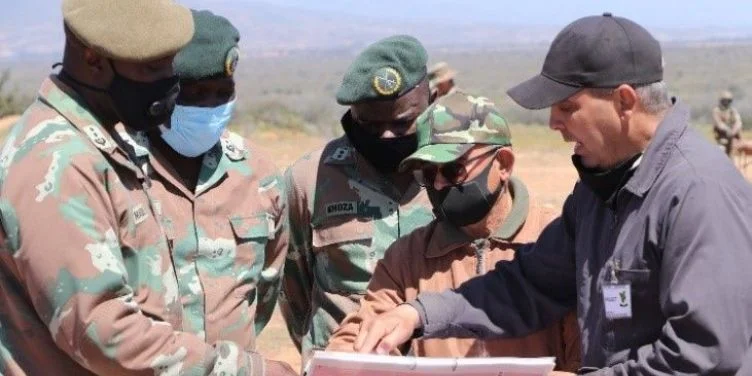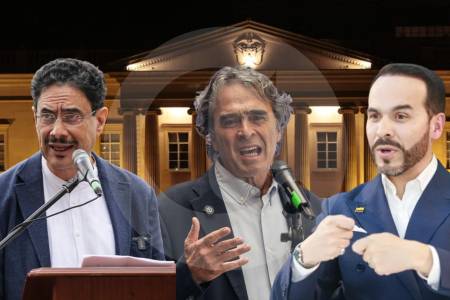
South Africa Cancels Project with Cuban Regime After Multi-Million Dollar Embezzlement
- Cuba
- abril 2, 2025
- No Comment
- 114
MIAMI, United States. – The South African Parliament revealed this week that the Thusano Project—a cooperation agreement with the Cuban regime focused on military training, defense vehicle maintenance, and medical education—resulted in irregular spending of 1.7 billion rand (over 90 million USD) due to violations in procurement procedures.
In response to the scandal, reported by the South African portal Defence Web, the Department of Defense (DoD) proposed the Kgala Project as a supposedly more efficient and cost-effective alternative.
South Africa’s Auditor-General (AGSA) released a scathing report on the Thusano Project, stating that “the agreements under this project did not comply with the Public Finance Management Act (PFMA) or Treasury regulations.” According to the report, the hiring of Cuban services bypassed standard competitive processes, and no cost-benefit analysis was conducted prior to incurring the expenses.
One of the most alarming findings was that “the cost of using Cuban labor was up to 3.8 times higher than if South African technicians had been employed.” Additionally, the costs of training in Cuba were found to be excessive, with medical student expenses 136% higher than for local training.
Another major point of controversy was the purchase of the Cuban-made drug Heberon for 33.5 million rand without approval from South African regulatory bodies. “Fortunately, the return of this medication to Cuba prevented a potential loss of 226 million rand,” according to the AGSA, though the incident revealed structural failures in the Defense Department’s procurement oversight.
In response to criticism, the Department of Defense attempted to defend the Cuban regime’s involvement in military vehicle maintenance and personnel training. “The agreement with Cuba allowed the SANDF to repair thousands of vehicles, many of which had been deemed irreparable by local contractors,” stated Brigadier General BG Mtsweni, Chief of Staff of the South African National Defence Force (SANDF). According to DoD data, 10,779 military vehicles were restored over a seven-year period.
The Kgala Project, intended to replace Thusano, was introduced as a more efficient alternative, with a projected 82.3% reduction in spending over the next five years. Unlike its predecessor, it will not include vocational training, as that component will be integrated into South Africa’s Framework for Learning Opportunities Abroad.
Despite the Kgala Project’s promises of efficiency, members of parliament expressed skepticism over whether it would truly address the failures of the Thusano Project. Concerns were raised about the lack of professional accreditation for engineers and doctors trained in Cuba, as many of them were unable to register with South African professional bodies.
Opposition MP Chris Hattingh of the Democratic Alliance (DA) rejected the continuation of agreements with Havana, calling the Kgala Project “a rebranded version of the failed and wasteful Thusano Project.” Hattingh argued that the collaboration with the Cuban regime has delivered no tangible benefits to South Africa and claimed that “billions of rand have been funneled to Cuba with no measurable results for the South African Defence Force or its personnel.”
Hattingh also criticized the disproportionate cost of military vehicle maintenance carried out by Cuban providers and asserted that South Africa’s own defense industry is fully capable of performing such tasks at a lower cost. He further accused the government of maintaining these agreements with Havana for political reasons: “Cuba’s involvement in military training and skills transfer has no technical justification; it’s a political decision aimed at repaying old debts between the ANC and Cuba.”
The legislator also noted that medical training in Cuba, in addition to being more expensive than local options, had a pass rate of just 28%. “There is no cost-benefit analysis or needs assessment before these agreements are signed,” he concluded, urging that the Kgala Project be immediately canceled and that the Department of Defense end its dealings with Cuba.
Recibe la información de CubaNet en tu celular a través de WhatsApp. Envíanos un mensaje con la palabra “CUBA” al teléfono +1 (786) 316-2072, también puedes suscribirte a nuestro boletín electrónico dando click aquí.




